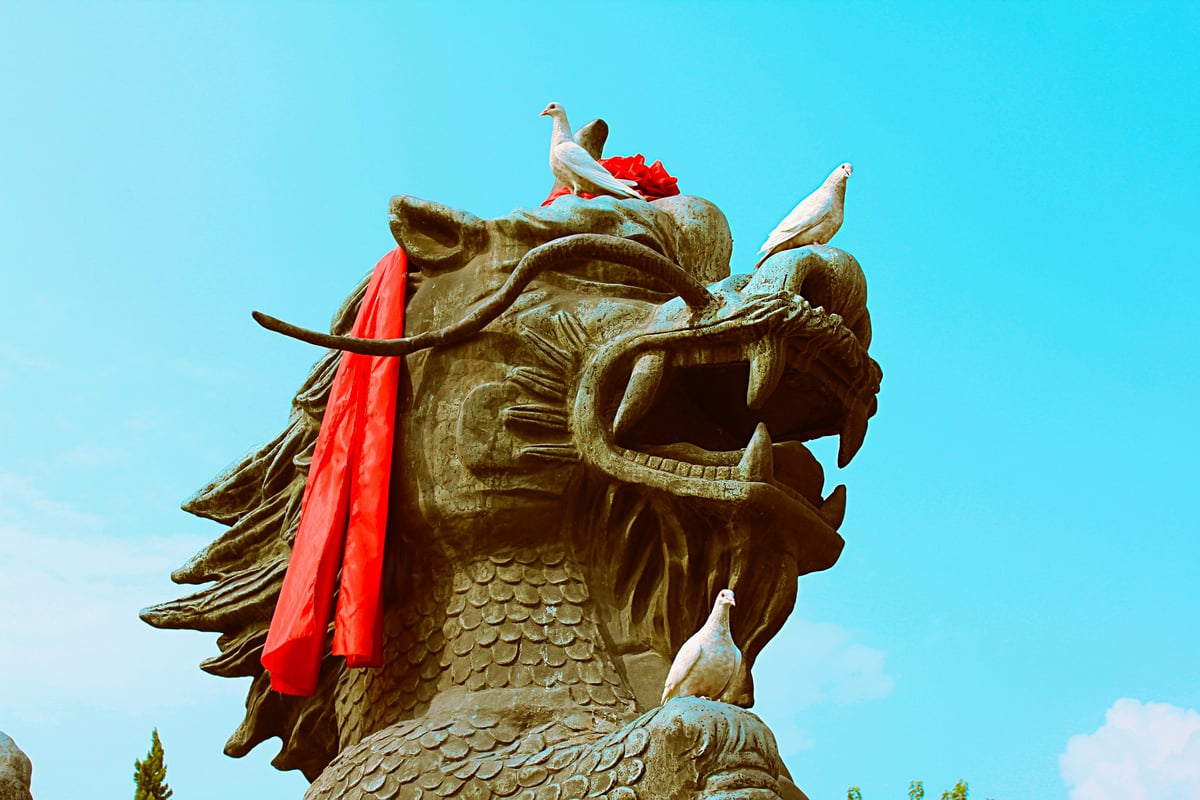China’s ambassador to the EU, Cai Run, has been busy since he arrived in Brussels a year ago.
On social media, in luncheons with business, at this month’s National Day reception and on the pages of this site, he has been striving to present a vision of peaceful cooperation, mutual success, and shared prosperity between China and Europe.
His call for closer ties is grounded in the powerful appeal of anniversaries: 50 years of EU-China relations, for which the Chinese Mission organised an art contest, or 80 years since the end of World War Two (or as ambassador Cai and the Chinese state have begun to say, “the World Anti-Fascist War”) and the founding of the United Nations.
While these narratives may appear clunky or innocuous, they are sustained by the dangerous omission of the human rights realities that define daily life to many people in mainland China, as well as those in Taiwan.
Over the last several years, the Chinese government has issued high-level statements about the importance of peace and positioned itself as a broker between Russia and Ukraine, the Myanmar junta and armed groups, and Iran and Saudi Arabia.
But at the same time, they have allowed the export of arms and materiel to Sudan and Myanmar and of censorship and surveillance technologies to Pakistan, Kazakhstan and the Solomon Islands, just as examples.
They have made it clear that, when it comes to Russia, the two countries are “true friends” and “good neighbours” — and that China’s markets remain open to Russian business.
Taiwan
Nowhere else is the contradiction between lofty Chinese diplomatic ideals and calculated action more clear than in Taiwan. Recent years were already marked by increasing military build-up of the People’s Liberation Army and aggressive remarks, including from president Xi Jinping.
But now Taiwan is facing escalating military threats from the Chinese military, as fighter jets and warships routinely cross the median line of the Taiwan Strait and large-scale blockade drills are staged around the island.
In addition, the decision-making mechanisms under Xi Jinping are highly opaque, making it hard to assess the current level of danger.
All of this is raising the risk of violent confrontation, jeopardizing lives and instilling fear and uncertainty among civilians. Vulnerable groups like older people and children are especially affected. These acts are not only symbolic — they expressly attempt to intimidate and destabilize the public and civil society on the island. They present a clear and present danger to human rights.
Simultaneously, according to Taiwan’s National Security Bureau, Chinese disinformation campaigns included up to 2.4 million cyberattacks per day in 2024, and other forms of hybrid warfare that erode Taiwan’s peace and stability and infringe upon the basic rights of its people.
Authorities in mainland China and Taiwan both must ensure an enabling environment for freedom of expression, including by promoting a free, independent and diverse communications environment.
This aggressive posture stands in stark contradiction to the peaceful rhetoric China promotes in Europe.
If China truly understands the devastation of World War II — as it claims in its commemorative reflections — it should recognise that threatening the lives and freedom of millions in Taiwan is a betrayal of the very lessons it proclaims to have learned.
Another measure of China’s commitment to dialogue and cooperation is the extent to which those activities — inherent in the “genuine multilateralism” that the government claims to uphold — actually result in concrete improvement at home.
The absence of these is clearly reflected in the concluding observations of various human rights treaty reviews and the outcome of its Universal Periodic Review at the United Nations.
The Chinese government, despite having a good track record in responding to and engaging with those human rights mechanisms, has taken little to no meaningful steps in the last 10 years to implement the recommendations they set out.
Uyghurs, Hong Kong, Tibet
Key examples include the repression of Uyghurs in Xinjiang and the criminalisation of the defence of human rights across the country, the erosion of freedoms in Hong Kong and the ongoing efforts to curtail cultural and linguistic rights of Tibetans.
These are not isolated incidents — they are systemic violations that demand international scrutiny. And yet when European countries seek dialogue on these issues — on the occasion of bilateral visits, or for the EU-China Summit — China consistently dismisses efforts to raise human rights concerns as “interference in internal affairs” and attacks on its sovereignty.
Instead of issuing a standing invitation to UN human rights expert mechanisms, as most European countries have done, China has played an extreme game of pick-and-choose.
The foreign ministry of China has ignored repeated requests for more than a decade from special procedures mandate-holders focused on a range of civil, political, social, economic and cultural rights, but fast-tracked the visits of others — such as the UN specialrapporteur on the negative impact of unilateral coercive measures.
This arbitrary approach to multilateralism erodes trust and undermines the very principles of cooperation and peace that China claims to uphold, and it should serve as a red flag warning to European leaders: if they find it convenient to take Chinese officials at their word, they should also be prepared to insist on accountability for Chinese government actions.
China’s narratives of partnership will remain hollow until it ceases its threats against Taiwan and others and addresses the human rights abuses within its own borders.
Only by confronting these contradictions can we build a future grounded in genuine peace, justice, and mutual respect.
Every month, hundreds of thousands of people read the journalism and opinion published by EUobserver. With your support, millions of others will as well.
If you’re not already, become a supporting member today.
